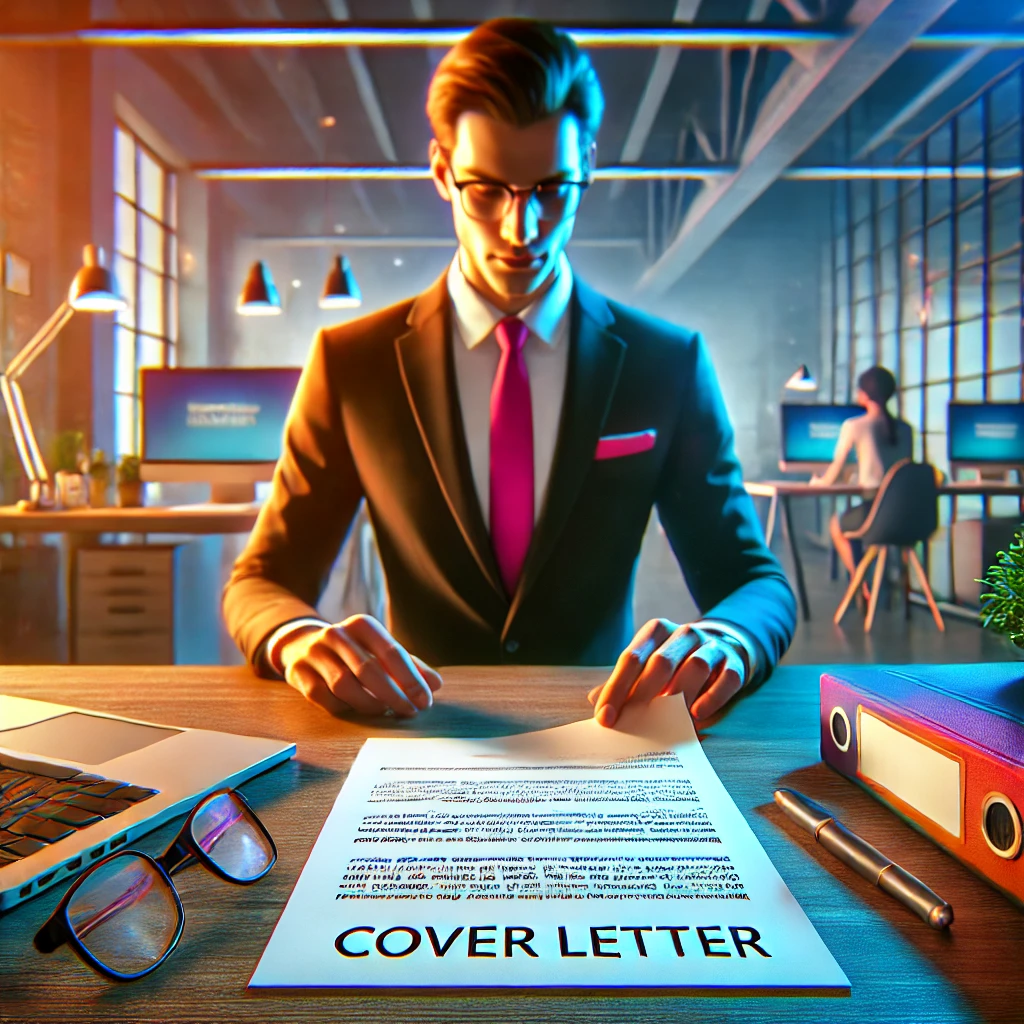How to start a cover letter can feel like a daunting task. How do you capture a hiring manager’s attention in just a few sentences? Whether you’re thinking about how to start a cover letter in general or how do we start a letter professionally, the opening of your cover letter needs to be strong, purposeful, and tailored to the job you’re applying for.
In this guide, we’ll explore exactly how do you start a cover letter with impact and what strategies will give you the best chance of landing an interview. From addressing the hiring manager directly to highlighting key achievements early on, these seven tips will ensure your cover letter opens with a bang.
Why the Opening of a Cover Letter Matters
The cover letter is your opportunity to connect with a potential employer, and the opening paragraph is crucial. It sets the tone for the rest of your cover letter and can determine whether the hiring manager keeps reading. If you’re wondering, how to start a cover letter that’s both engaging and professional, the key lies in crafting a powerful introduction.
The first impression really counts. How do you start a letter with maximum impact? A good opening shows you’re a strong candidate, making it clear that you’ve done your research and are genuinely interested in the role. A bad start, however, might leave the employer unimpressed, even if your qualifications are outstanding.
Understanding the Basics: How to Start a Cover Letter
When people ask, how do we start a letter formally, they often fall into common traps like using overly generic greetings or beginning with boring, overused phrases. The key to success is balancing professionalism with a personal touch.
You should always try to address your cover letter to a specific person—ideally the hiring manager. If you’re unsure who that is, do a bit of research on LinkedIn or the company’s website. But what if you can’t find a name? In that case, using “Dear Hiring Manager”, “Dear Hiring Team” or “Dear [Department] Manager” is acceptable and more professional than “To Whom It May Concern.”
Tip 1: Address the Hiring Manager Directly
Addressing the hiring manager by name is one of the easiest ways to make a positive first impression. It shows that you’ve done your homework and are serious about the job. But how do you start your cover letter if the hiring manager’s name isn’t available? A formal, yet non-generic greeting works just as well.
Example of personalized greeting:
- “Dear Mr. Johnson,”
- “Dear Ms. Patel,”
If the name is unavailable:
- “Dear Hiring Team,”
- “Dear Sales Department Manager,”
This personalization might seem like a small detail, but it can make a significant difference. It’s a simple way to differentiate yourself from other candidates who may opt for generic greetings.
Tip 2: Use a Professional, Yet Engaging Tone
Once you’ve greeted the hiring manager, the next step is to strike the right tone. Your cover letter should be professional, but it should also engage the reader right from the start. This is especially important if you’re applying for a role that requires communication skills or creativity.
Many people wonder, how do I start a letter that sounds enthusiastic yet professional? You want to show your excitement about the role, but without coming across as too casual or overly formal.
Example of a strong opening line: “I was thrilled to see the Marketing Manager position open at XYZ Corporation. With over five years of driving innovative campaigns, I’m excited to bring my expertise to your team.”
In this example, the applicant starts with enthusiasm but keeps the tone professional. It conveys a sense of excitement without sacrificing formality.
Tip 3: Reference the Job Listing or Company
Mentioning the job title or the company name in your first sentence is an excellent way to demonstrate your interest in the specific position. This is an easy way to avoid generic openings and to answer how do you start a letter with intention.
Example of referencing the job listing: “I was excited to see your posting for a Senior Software Developer at ABC Tech, as I believe my experience with full-stack development can contribute to your team’s continued success.”
By referencing the role, you immediately communicate that this is a tailored application, not a one-size-fits-all letter. This shows effort and adds a personal touch.
Tip 4: Highlight Your Enthusiasm for the Role
Employers don’t just want to know that you’re qualified—they want to know that you’re genuinely excited about the job. Your enthusiasm can be contagious, so make sure it shines through in your cover letter’s opening.
Example of showing enthusiasm: “I have long admired DEF Corporation for its innovative approach to sustainability, and I am excited to apply for the Project Manager position to contribute to your important work in the renewable energy sector.”
This type of opening immediately shows that you’re interested not only in the job but also in the company’s mission. Enthusiasm is a key element of how to start your cover letter in a way that connects emotionally with the hiring manager.
Tip 5: Lead with a Relevant Achievement or Skill
If you want to hook the hiring manager right away, start with an achievement or a specific skill that’s relevant to the job. This is particularly effective if the job description emphasizes certain qualifications that you possess.
Example of leading with a skill or achievement: “In my previous role as an Operations Manager, I led a team that reduced production costs by 15% while improving product quality—a result I’m eager to replicate at your organization.”
This immediately signals that you are results-driven and qualified for the role. It’s a powerful answer to how to start a cover letter with a strong first impression.
Tip 6: Show That You Understand the Company’s Needs
One of the most effective ways to start your cover letter is by demonstrating that you understand the company’s goals and challenges. Tailor your opening to show how you can meet their specific needs.
Example of aligning with company needs: “With XYZ Corp’s recent expansion into the European market, my background in international logistics and supply chain management will be of great value in streamlining your operations abroad.”
This kind of tailored opening proves that you’ve done your research, which can set you apart from other applicants.
Tip 7: Keep it Concise and to the Point
While it’s important to craft a compelling opening, don’t overdo it. Brevity is key when deciding how to start a cover letter. Aim for a concise but impactful first paragraph that quickly highlights why you’re the right candidate for the job.
Example of a concise yet powerful opening: “As a seasoned financial analyst with expertise in budget forecasting and performance optimization, I am eager to contribute to your finance team at ABC Company.”
This opening is straight to the point, quickly giving the reader an idea of what you bring to the table without any unnecessary fluff.
Common Mistakes to Avoid in Your Cover Letter Opening
- Using generic phrases like “I am writing to apply for…”—this doesn’t stand out.
- Being too vague—avoid general statements that don’t convey specific value.
- Coming across as overly formal—you want to be professional, but avoid stuffiness.
- Being overly casual—this is still a formal document, so don’t be too relaxed.
How to Start Your Cover Letter: 5 Perfect Openings for Different Roles
Marketing Role: “With a proven record of driving successful digital marketing campaigns, I am excited to apply for the Marketing Manager position at XYZ Corp. My experience with SEO, PPC, and content strategy aligns perfectly with your team’s goals.”
Customer Service Role: “As a dedicated customer service professional with five years of experience resolving issues and ensuring client satisfaction, I’m eager to bring my expertise to DEF Company and help maintain your exceptional reputation.”
Management Role: “Having successfully led teams to exceed sales targets and improve operational efficiency, I am thrilled at the prospect of joining ABC Corp as your new Operations Manager.”
IT Specialist Role: “I have a deep passion for IT security and network optimization, which is why I’m excited to apply for the IT Specialist position at GHI Technologies. My experience in cybersecurity aligns well with your company’s current needs.”
Creative Position: “Bringing a fresh perspective and a passion for visual storytelling, I am eager to apply for the Graphic Designer role at your agency and contribute to the bold, creative work DEF Studio is known for.”
Conclusion
Knowing how to start a cover letter effectively is one of the most important steps in securing a job interview. Your opening should be tailored, concise, and engaging, whether you’re addressing the hiring manager directly or leading with a powerful achievement. By following these seven tips about how to start a cover letter, you can craft a cover letter that stands out and increases your chances of success. Now it’s time to put these tips into practice and perfect the opening of your next cover letter!
FAQs
- How do I address a cover letter if I don’t know the hiring manager’s name?
- Use a formal yet non-generic greeting such as “Dear Hiring Manager” or “Dear [Department] Manager.”
- Can I start my cover letter with a quote?
- While not typical, you can use a quote in creative industries, but make sure it’s relevant to the job.
- How long should the opening paragraph be in a cover letter?
- Aim for 3-4 sentences. It should be concise yet impactful.
- What should I avoid when starting my cover letter?
- Avoid clichés like “I am writing to apply for…” and overly generic openings.
- Should I mention my current job in the opening?
- Only if it’s directly relevant to the position you’re applying for. Otherwise, save that for later.
- How formal should my opening sentence be?
- Your opening should strike a balance between professional and conversational, depending on the industry.
- Can I use the same cover letter opening for multiple job applications?
- No. Tailoring your cover letter to each specific role is crucial for making a good impression.

